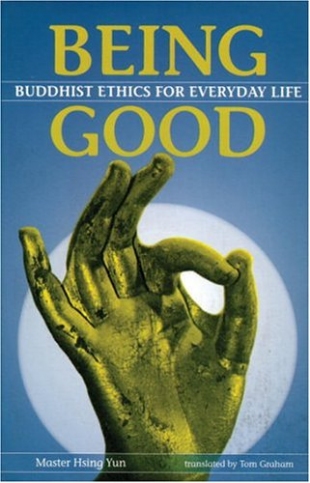"If you keep your practice steady, / morning and night, summer and winter, / there is nothing you cannot do / and nothing that can harm you" goes a text in the Upasakashila Sutra. And the practice of being good, according to Master Hsing Yun, a Chinese monk, is an essential part of the path of liberation in Buddhism. This founder of Fo Kuang Shan monastery in Taiwan presents an enlightening overview of ethics for everyday life based on the Dharma.
A Chinese folk saying goes: "A good word melts the cold of March, while a bad word can freeze the warmth of June." Master Hsing Yun discusses the harm that can come to others when we use words to lie, flatter, or mislead people. One Buddhist text even goes so far as to state that whenever we tease somebody viciously, it is as if we were cutting him or her with a knife.
To end anger, Master Hsing Yun suggests that we regard all sentient beings as our children — why then would we want to harm them? He believes that dissatisfaction with what we have can be overcome by wisdom and by helping others. The author offers other sagacious practices to enhance compassion, faith, and generosity. Being Good by Master Hsing Yun has been translated by Tom Graham.
